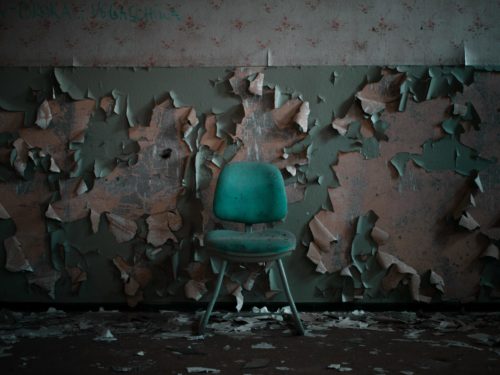The saying goes, “The journey of a thousand miles begins with a single step.” But for many women who struggle with porn, the real question is “what is that single step?”
We find ourselves at “Point A” and “Point A” looks something like this: I know I have a problem and want to stop.
But after that, we feel a little lost. What’s the next step?
And we can get dizzy with the options.
Tell somebody? Who.
After I tell someone, then what?
What if there’s no one to tell?
How about I try to do this myself?
Maybe I can install some software on my computer and solve this without telling anyone.
What if I just get rid of my cell phone?
What if I start punishing myself?
I tried a few different “first steps” and most of them didn’t work.
Control
At first, I tried to control my usage. As a senior in high school, I recognized I had a problem but, at the time, the problem just felt like it was an overuse of pornography. “All things in moderation” I thought. But my use was out of control. Hours a day were spent watching pornography and nights were wasted away in fantasy.
I truly believed pornography had a healthy place in my life. It was a healthy outlet for sexual frustration. I just needed to get it under control.
I tried to password protect our internet. But, I knew the password, so that didn’t help.
I tried to limit my usage to just an hour or so at a time, but quickly found I couldn’t keep track of time.
Telling someone wasn’t an option. No one would understand.
Punishment
When control didn’t work, I resorted to self-harm. I was so frustrated and disgusted with myself. When I would go over my limit for porn use, I would literally beat myself. My thinking was that if I could make this physically hurt, then I would stop.
That didn’t work.
Getting Caught
As I went off to college, knowing my struggle was out of control, I decided that the only way I could get help was to get caught. There was no way I could tell someone.
Who would I tell?
I couldn’t tell my mother, my pastor(s), my friends, my teachers, or my youth pastor.
In my mind, there was no way to start the conversation. I didn’t know who to tell or how to tell them. If I got caught, I thought, then I wouldn’t have to worry about starting the conversation. Someone else would be starting it.
I did get caught, but instead of it starting a conversation of freedom, it led to shame. The dean of women told me that because I was a woman and “women just don’t have this problem,” they knew I wasn’t the one using pornography.
Each of these “first steps” didn’t lead to freedom. They led to deeper struggles.
From my personal experience and that of many women, the first step in finding freedom is to tell someone your struggle.
To every woman who has ever written in wondering what to do now, that’s the answer: tell someone.
Confession is a scary word because we so often associate it with punishment. A criminal confesses their crime. A child confesses when they’ve done something wrong. But “confession” is not supposed to be tied to punishment. In fact, the Biblical concept of confession is tied to forgiveness and freedom.
But since the word is a bit culturally corrupted, I try to use the phrase “share your story” instead of “confess.”
Why is “confession” the best first step?
For many of us, the biggest obstacle to freedom is actually shame. It’s shame that keeps us from getting help or even believing we can be helped. It’s shame that drives us away from community. Shame causes us to lie and live in fear.
Sharing your story is a good first step because it directly attacks shame. It sends a message that says, “I am worthy of being known, and I am going to pursue that end.” Shame will say you can never tell anyone and that you have to figure this out yourself. Once you attack that shame, you set in motion a process of healing and reconciliation in community that enables you to pursue freedom.
But just because it’s the best step doesn’t mean it’s the easiest.
If you share your story and are met with shame, it can feel like sharing your story was the wrong step.
That’s yet another lie of shame. Sharing your story is the right first step.
Yes, you can do things to eliminate triggers. You can put passwords and software on your phone or computer. But those can’t free you from shame. Passwords and software don’t reconnect you to community. Passwords and software don’t heal.
ou can pick up a book and follow a program, but those don’t reconnect you to community. They don’t heal.
Even if you find a way to will yourself out of pornography, if you’re still living trapped in shame, that’s not the life God desires for you.
If “Point A” is “I know I have a problem and I want to stop” and “Point Z” is “freedom and life the way God intended it” then at some point along the way, community comes into play. One of the steps of that journey is letting someone into your story. Making it the first step helps you shed the weight of shame and have a friend along the journey.
So if you’re one of the countless women wondering what your “next step” is, this is it: Find a trusted friend, counselor, or mentor, and share your story.
Not sure who you can tell? Check out this blog post here or this one here.






